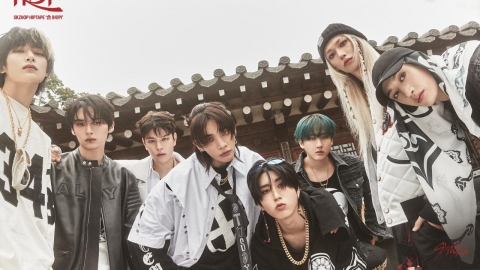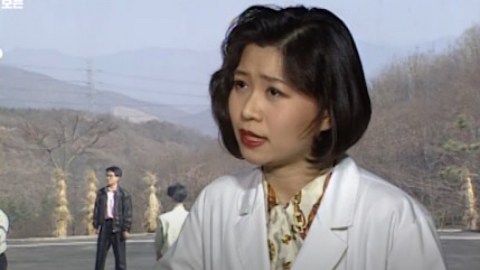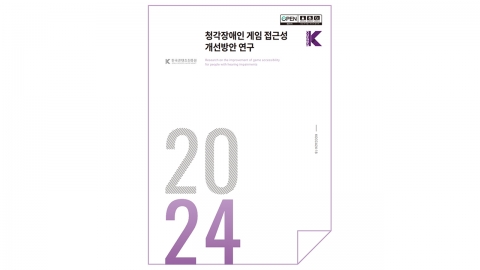The ruling party should "not have a warrant execution incident"...Opposition parties should "cooperate with enforcement"
2025.01.01 PM 04:04
[Anchor]
When Oh Dong-woon, head of the Airborne Division, said he would execute the arrest warrant for President Yoon in principle, politicians are also paying keen attention to whether the warrant is actually executed and its repercussions.
People's Power expressed regret over the issuance of the warrant but said there should be no casualties in the execution process, and the Democratic Party urged Acting President Choi Sang-mok and the Presidential Security Service to cooperate with the execution of the warrant.
Let's connect to the National Assembly and listen to the details.
Reporter Son Hyo-jung, please tell us the movement of the ruling and opposition parties in detail today!
[Reporter]
Yes, as the execution of President Yoon's arrest warrant has emerged as a top-notch concern, tensions in the ruling camp are also rising.
The ruling party's leadership seems to continue to struggle with the party's response and level if the Senior Civil Servant Corruption Investigations Unit attempts to execute an arrest warrant.Speaking to reporters after a closed-door meeting of the leadership, Chairman of the emergency committee
said he would talk to the police and other related agencies appropriately to prevent any casualties during the execution of the arrest warrant.
However, if the forced investigation of the president becomes a reality, the voice that the party should distance itself from the president may be bolstered.
The Democratic Party is also closely watching the investigation of President Yoon.As President
Yoon repeatedly avoided the summons, the issuance of an arrest warrant was inevitable, and urged the Senior Civil Servant Corruption Investigations Unit to execute it quickly.
To the Presidential Security Service, he stressed that what the Security Service should protect is the president who protects the Constitution, not the rebellion that violates the Constitution.
In a written briefing, Kang Yoo-jung, a spokesman for the floor, pressed Acting President Choi Sang-mok to order the Security Agency to cooperate in the execution of arrest warrants.
[Anchor]
The appointment of constitutional judges and the bilateral special prosecution law remain the detonator of the conflict between the ruling and opposition parties, so please tell us the political outlook!
[Reporter]
In response to Acting President Choi Sang-mok's decision to appoint two of the three candidates for the Constitutional Court recommended by the National Assembly, National Assembly Speaker Woo Won-sik is considering calling for a competition trial.
It is an unconstitutional decision that violates the legislature's right to elect a constitutional judge for the National Assembly, and it is expected to make a detailed position as early as this week.
Democratic opposition is also strong.
The act of "selection" itself, which withheld the appointment of a candidate for a constitutional judge elected by the National Assembly, is unconstitutional and blasphemy of the people.
The People's Power also strongly criticized Choi's decision,
The appointment of a constitutional judge itself is inappropriate, saying that it is beyond the scope of the exercise of the acting president's authority to maintain the
status quo.
Floor leader Kwon Sung-dong told reporters at the headquarters today that he has no plans to consult with the opposition on the pending candidate for constitutional justice.
The "Civil War Special Prosecutor" and "Kim Gun-hee's Special Prosecutor Act", which were vetoed yesterday, will soon be re-determined at the National Assembly, and we are interested in whether negotiations on the amendment will take place.
The people's power has indicated that they can negotiate with the opposition party on the contents of the special prosecution law, which is considered a toxic clause, and some analysts say that it is aimed at cracking down on internal party breakaway votes in the special prosecution's re-vote.
The Democratic Party also has doubts about the ruling party's willingness to negotiate.
A party official said in a call with YTN that if the ruling party is really willing to negotiate, it can propose an amendment to the Special Counsel Act.
In the end, negotiations between the ruling and opposition parties over the two independent counsel laws are expected to be outlined only after the plenary session's re-vote.
So far, I've delivered it to you by the National Assembly.
※ 'Your report becomes news'
[Kakao Talk] YTN Search and Add Channel
[Phone] 02-398-8585
[Mail] social@ytn.co.kr
When Oh Dong-woon, head of the Airborne Division, said he would execute the arrest warrant for President Yoon in principle, politicians are also paying keen attention to whether the warrant is actually executed and its repercussions.
People's Power expressed regret over the issuance of the warrant but said there should be no casualties in the execution process, and the Democratic Party urged Acting President Choi Sang-mok and the Presidential Security Service to cooperate with the execution of the warrant.
Let's connect to the National Assembly and listen to the details.
Reporter Son Hyo-jung, please tell us the movement of the ruling and opposition parties in detail today!
[Reporter]
Yes, as the execution of President Yoon's arrest warrant has emerged as a top-notch concern, tensions in the ruling camp are also rising.
The ruling party's leadership seems to continue to struggle with the party's response and level if the Senior Civil Servant Corruption Investigations Unit attempts to execute an arrest warrant.Speaking to reporters after a closed-door meeting of the leadership, Chairman of the emergency committee
said he would talk to the police and other related agencies appropriately to prevent any casualties during the execution of the arrest warrant.
However, if the forced investigation of the president becomes a reality, the voice that the party should distance itself from the president may be bolstered.
The Democratic Party is also closely watching the investigation of President Yoon.As President
Yoon repeatedly avoided the summons, the issuance of an arrest warrant was inevitable, and urged the Senior Civil Servant Corruption Investigations Unit to execute it quickly.
To the Presidential Security Service, he stressed that what the Security Service should protect is the president who protects the Constitution, not the rebellion that violates the Constitution.
In a written briefing, Kang Yoo-jung, a spokesman for the floor, pressed Acting President Choi Sang-mok to order the Security Agency to cooperate in the execution of arrest warrants.
[Anchor]
The appointment of constitutional judges and the bilateral special prosecution law remain the detonator of the conflict between the ruling and opposition parties, so please tell us the political outlook!
[Reporter]
In response to Acting President Choi Sang-mok's decision to appoint two of the three candidates for the Constitutional Court recommended by the National Assembly, National Assembly Speaker Woo Won-sik is considering calling for a competition trial.
It is an unconstitutional decision that violates the legislature's right to elect a constitutional judge for the National Assembly, and it is expected to make a detailed position as early as this week.
Democratic opposition is also strong.
The act of "selection" itself, which withheld the appointment of a candidate for a constitutional judge elected by the National Assembly, is unconstitutional and blasphemy of the people.
The People's Power also strongly criticized Choi's decision,
The appointment of a constitutional judge itself is inappropriate, saying that it is beyond the scope of the exercise of the acting president's authority to maintain the
status quo.
Floor leader Kwon Sung-dong told reporters at the headquarters today that he has no plans to consult with the opposition on the pending candidate for constitutional justice.
The "Civil War Special Prosecutor" and "Kim Gun-hee's Special Prosecutor Act", which were vetoed yesterday, will soon be re-determined at the National Assembly, and we are interested in whether negotiations on the amendment will take place.
The people's power has indicated that they can negotiate with the opposition party on the contents of the special prosecution law, which is considered a toxic clause, and some analysts say that it is aimed at cracking down on internal party breakaway votes in the special prosecution's re-vote.
The Democratic Party also has doubts about the ruling party's willingness to negotiate.
A party official said in a call with YTN that if the ruling party is really willing to negotiate, it can propose an amendment to the Special Counsel Act.
In the end, negotiations between the ruling and opposition parties over the two independent counsel laws are expected to be outlined only after the plenary session's re-vote.
So far, I've delivered it to you by the National Assembly.
※ 'Your report becomes news'
[Kakao Talk] YTN Search and Add Channel
[Phone] 02-398-8585
[Mail] social@ytn.co.kr
[Copyright holder (c) YTN Unauthorized reproduction, redistribution and use of AI data prohibited]
Editor's Recomended News
The Lastest News
-
The bereaved family of the airliner disaster asks for an official apology to the Aekyung Group affiliate's 'controversy over prizes.'
-
The search for the scene of the Jeju Air plane crash is final..."No more bodies."
-
Yatap Station shopping mall fire identification..."Estimated fire while cooking at a restaurant".
-
All the plane victims can be delivered today...full support for funerals


![[Weather] On the weekend, it\'s mostly sunny across the country...The cold has eased since the day.](http://image.ytn.co.kr/general/jpg/2025/0104/202501041048482017_h.jpg)






